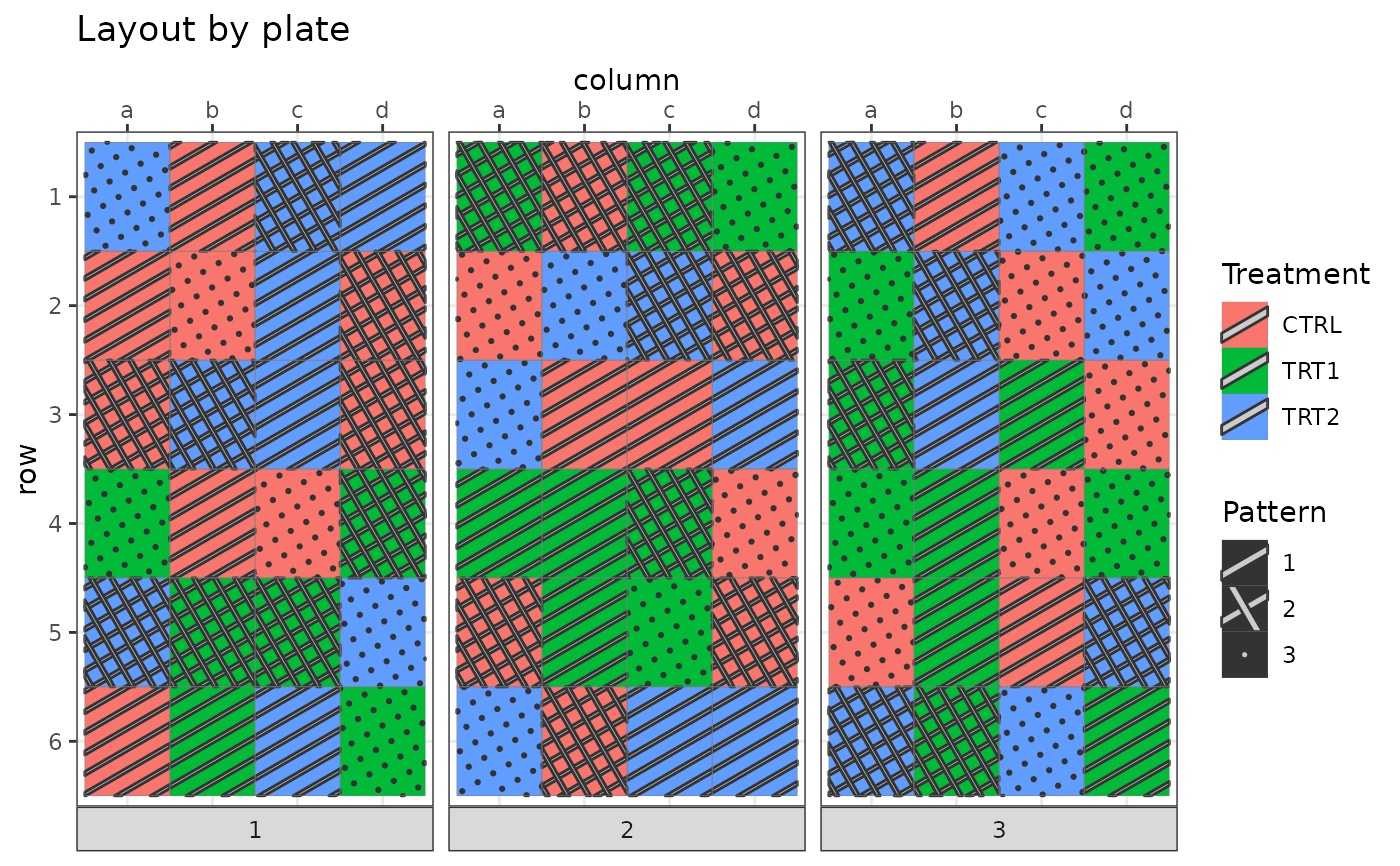Plot plate layouts
Arguments
- .tbl
a
tibble(ordata.frame) with the samples assigned to locations. Alternatively a BatchContainter with samples can be supplied here.- plate
optional dimension variable used for the plate ids
- row
the dimension variable used for the row ids
- column
the dimension variable used for the column ids
- .color
the continuous or discrete variable to color by
- .alpha
a continuous variable encoding transparency
- .pattern
a discrete variable encoding tile pattern (needs ggpattern)
- title
string for the plot title
- add_excluded
flag to add excluded wells (in bc$exclude) to the plot. A BatchContainer must be provided for this.
- rename_empty
whether NA entries in sample table should be renamed to 'empty`.
Value
the ggplot object
Examples
nPlate <- 3
nColumn <- 4
nRow <- 6
treatments <- c("CTRL", "TRT1", "TRT2")
timepoints <- c(1, 2, 3)
bc <- BatchContainer$new(
dimensions = list(
plate = nPlate,
column = list(values = letters[1:nColumn]),
row = nRow
)
)
sample_sheet <- tibble::tibble(
sampleID = 1:(nPlate * nColumn * nRow),
Treatment = rep(treatments, each = floor(nPlate * nColumn * nRow) / length(treatments)),
Timepoint = rep(timepoints, floor(nPlate * nColumn * nRow) / length(treatments))
)
# assign samples from the sample sheet
bc <- assign_random(bc, samples = sample_sheet)
plot_plate(bc$get_samples(),
plate = plate, column = column, row = row,
.color = Treatment, .alpha = Timepoint
)
 # \donttest{
plot_plate(bc$get_samples(),
plate = plate, column = column, row = row,
.color = Treatment, .pattern = Timepoint
)
# \donttest{
plot_plate(bc$get_samples(),
plate = plate, column = column, row = row,
.color = Treatment, .pattern = Timepoint
)
 # }
# }